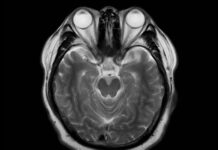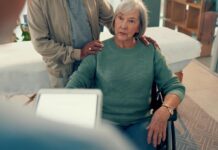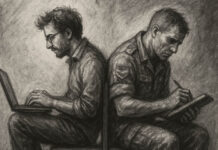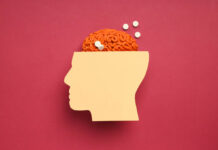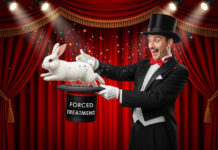Not Even the Unborn Are Safe from Psychiatric Harm
Medical organizations and the media dismiss the experts and the large body of research telling of fetal harm from exposure to SSRIs during pregnancy.
A Manner of Speaking
A cinematic prose poem that uses metaphor and symbol to capture the essence of experiences for which there are no words.
Sober Living: Why Less Clinical Sometimes Means More Recovery
Real independence is where most people stumble. Treatment can’t replicate what it’s like to live sober in the chaos of everyday life.
The Psychological Totalization of Experience: Objectification and Subjectivity
I must be a mechanistic, predictable unit, in order for a psychiatric label or a psychological variable to be implemented on me smoothly.
ECT: New Studies Detail Harms, Lack of Efficacy, Lack of Informed Consent
What people who have received ECT really think about what they were told, and about how ECT affected them.
Community, Ethics, and Healing Amidst the Great Unraveling
If our treatment is only aligned with the individualist reductionist model, we are unwittingly contributing to destruction.
Narrative Reclamation: Who’s Allowed to Tell Their Story?
Narratives have the power to lock us up—sometimes literally. But they also have the power to set us free.
How to be a Critical Psychologist Without Losing Your Soul: A Conversation With Zenobia...
On the Mad in America podcast, Zenobia Morrill, José Giovanni Luiggi-Hernández and Justin Karter join us to explore the need to raise awareness of psychological approaches that challenge mainstream perspectives.
Reflections on My Mistrust for Other Mental Health Workers
I learned to hold my tongue around mental health workers. I dealt with their slurs by working harder and longer than them.
Veteran Suicide Prevention Legislation Introduced That Will Save Lives
The bill will require prescribers to obtain written informed consent including the risks of psychiatric drugs.
Confessions of an Ad Writer: How I Helped Turn Atypical Antipsychotics into a Billion-Dollar...
How we redefined schizophrenia, rewrote the safety narrative of antipsychotics, and helped drive one of the most successful (and concerning) pharmaceutical launches in history.
When Repair Doesn’t Come: A Trauma Survivor Reflects on a Rupture With Her Therapist
I spent years in therapy slowly learning how to feel safe with another human being. But then came the rupture.
Two Voices and One Chair
It’s a war between two voices. The writer’s voice shapes, composes, imagines. The trauma’s voice: raw, insistent, unfiltered, breaking in.
Antipsychotics—And How I’ve Learned to Manage the Side Effects
While suppressing pathological symptoms, drugs also suppress the normal instinct of "wanting to move" and "wanting to enjoy life".
It’s the Cracked Ones Who Let the Light in
The identified patient is often the healthiest: a lighthouse desperately pointing the way to the wounds and power imbalances in the family.
The Deceptive Politics of Civil Commitment in Oregon
A workgroup in Oregon unanimously recommended rights-based mental health care. Then the politicians and those invested in forced treatment splintered off and implemented the exact opposite.
The Report That Erased Me: How Misdiagnosis and Neglect Delayed My Healing
What looks like defiance is often a child screaming: "I don't know how to trust you, prove me wrong."
Treat Systems, Not Symptoms: Defending the Sanity of the Oppressed
Pathologizing distress benefits psychiatry, hospitals, and pharmaceutical companies, but dampens responses that could dismantle oppression.
Is Dialogue the Best Medicine? A Conversation With Jaakko Seikkula
Jaakko Seikkula joins us on the MIA podcast to discuss how Open Dialogue came to be, the research that shows its positive outcomes, how psychiatry has failed to learn from Open Dialogue practice and more.
Cochrane Recommends Antidepressants for Anxiety in a Garbage In, Garbage Out Review
Cochrane's review of antidepressants for anxiety is misleading and harmful.
Out of Sight, Out of Mind
Society’s practice of physically segregating privileged people from those they deem to be “less than” has deep roots beginning with the treatment of madness.
America is Legislating a Return to the Asylum, One Policy at a Time
Federal and state policymakers across the partisan divide are defunding vital programs and rolling back policies and rights protections.
They Called It Psychiatry – I Call It Punishment
I was fighting something far more dangerous than madness — I was fighting a culture of fear and suppression masquerading as mental health care.
Where Did All the People Go?
The question that this history will try to answer is how Oregonian lives were affected by deinstitutionalization, in three phases.
An Approach to Making Sense of Psychiatric Research
I don’t consider myself a scientist in the usual sense, but I know a lot about what makes scientific findings more valid and useful.


